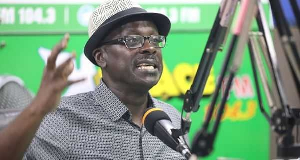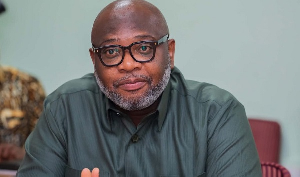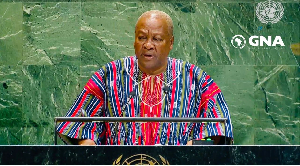It is a universal fact that, valid, legal, credible and legitimate Political Unions are formed democratically, based on mutual consent, negotiation and dialogue under the rule of law.
Every political union worth its salt must be backed by a union document or a deal or agreement for security, recognition, legitimacy and validity.
By their nature, political unions should be consensual, that is, they should not be imposed or done arbitrarily.
From all indications, and from records and evidences available, the so-called Ghana-British Togoland Union was not backed by a union document.
Moreover, it lacked the necessary ingredients of a valid, legal, legitimate and credible political union. Even the consultation done was one-sided and arbitrary.
Only Togoland was consulted. The Gold Coast was not. That is legally, and even morally, wrong and unfair.
Consider the fact that, even in ordinary, everyday marriages among men and women, tenets of mutual consent, marriage procedures and processes are obeyed and observed religiously.
How much more political unions among states?
How British Togoland was consulted
Facts and evidence available show that British Togoland was consulted on the union issue. This was done through the May 1956 Togoland Plebiscite.
The questions posed by the organizers of the Plebiscite were whether:
The people of Togoland would like to join their territory in a UNION with independent Gold Coast, or
Continue under UN Trusteeship pending the ultimate determination of their political future.
The majority of the people of British Togoland voted for Union but not for integration(note).
The UN was not satisfied with only the plebiscite results. It went ahead to 'express approval' for the Union in UN Resolution 1044(XI); and invited Britain to “take such steps as necessary” to bring about the Union.
Were the people of the Gold Coast consulted
It is clear that neither the Gold Coast nor the independent Gold Coast (Ghana) was consulted prior to the holding of the Plebiscite. The issue of
the union was topical in the Gold Coast and it was widely discussed in political circles but no official or legal consultation was done.
The discussion itself was seriously polarized. Opinions and views were
divided. Three main opinions could be identified:
British and Dr. Nkrumah’s stand: Since 1922 Britain was bent on integrating the British Togoland with her colony, the Gold Coast.
Everything and every attempt, fair or foul; was made to achieve the integration agenda. This intent was strengthened and given a boost when it was discovered that the Volta River Project (VRP) could not be meaningfully executed without integrating Togoland with the Gold Coast.
Nkrumah bought into the integration agenda idea, primarily, because of the Volta Project factor.
He owned the idea and, in fact, became obsessed with it and did everything possible to support and execute it. Britain and Nkrumah schemed and maneuvered their way through to the total detriment of the people of Togoland.
There was a section of die-hard CPP members who opposed the integration agenda because they wanted 'Independence Now'.
To them the integration agenda would unnecessarily delay independence.
The Opposition in the Gold Coast was vehemently opposed to the integration agenda. They were resolute and steadfast in opposing it because to them the integration would not benefit the Gold Coast neither would it serve any purpose.
They did not want the Gold Coast to join with Togoland. And most importantly, they claimed that the people of the Gold Coast were not consulted.
The Opposition was openly hostile to the integration idea. Led by Dr. J.B Danquah, they derided and opposed the union idea.
A confidential document written by B.O.B Gidden (UK delegate to the UN) to the United Kingdom delegation to the UN in October 1954, seeking to explain the position of the Gold Coast opposition leader Dr J.B Danquah stated that “Dr. Danquah is likely to do us (The UK Government) harm over Togoland".
The document further stated that, Dr. Danquah contends that the people of the Gold Coast have not been consulted [in the matter of joining with Western Togoland] and do not, in fact, want to join with Togoland…(B.O.B Gidden, British Delegate to the UN - attached herewith for further reading).
Indeed, barely two months after the Western Togoland Plebiscite of 9th May.1956, the people of the Gold Coast also went into a Referendum on 12th May.1956, to choose which type of political system or government will suit the new state of Ghana after her independence from Great Britain the following year, 6th of March, 1957.
The people of the Gold Coast (Western Togoland exempted) voted massively for a Unitary system of government or state, clearly showing that the people of the Gold Coast infact do not want to join in Union with Western Togoland as Dr. J.B Danquah was earlier quoted as saying.
Two other vital documents available to buttress the fact that there was no consultation with the people of the Gold Coast in the Ghana- Western Togoland UNION issue is a letter written to Ghana's Attorney General 's Department in June 2008 by Kosi Kedem, a former Member of Ghana's Parliament for Hohoe South, requesting for the Certified True Copy of the Ghana British Togoland Union Act.
A reply from the Attorney General 's Department to Kosi Kedem' s request stated that : " Iam directed by the Attorney General to acknowledge the receipt of your letter of 3rd June 2008 - I am not sure that there was a Union Act - the information you seek may be contained in an amending legislation after the Plebiscite as the result of which what is now the Volta Region - formerly Trans-Volta Togoland - became part of Ghana." The reply was signed by Justice V.C.R.A.C CRABBE, Commissioner, Statute Law Division for the Attorney General and Minister of Justice at the time.
This does not wash because if there was no original Union Act, then there is no legislation to be amended as being explained by the Attorney General 's reply to Kosi Kedem' s request.
Kedem further wrote to the UN in May 2008, making the same request but got a similar reply this: "In response to the letter Ref. UN/Legal/08 dated 12 May 2008, requesting a certified true copy of the Ghana-British Togoland Union Act (1957), please be informed that we did not find anything in our database regarding a Ghana-British Togoland Union Act - it means that this act has never been registered and so we cannot provide a certified true copy."......
With all of the above, it is quite clear that the people of the Gold Coast were not formally or officially consulted as it happened in the case of British Togoland.
That was wrong. Democracy, Justice and fairness would demand that both the Gold Coast and British Togoland should have been given the opportunity to express their views freely on the union issue.
This is because, forming a political union is a very serious political and constitutional matter. It involves ceding of sovereignty, territorial and national identity. The views and consent of both peoples of the Gold Coast and Togoland should have been sought mandatorily.
Judging from the opposition demonstrated, Britain was concerned that if the union issue was subjected to a plebiscite in the Gold Coast the
majority would vote against it.
So, in the Gold Coast, there was no referendum or plebiscite conducted to seek the views of the people on the issue.
The decision taken by Britain and her collaborators in the UN to form Ghana-Togoland Union was arbitrary, and indeed, an imposition on the people of the Gold Coast. The fact is that many people of the Gold Coast did not even understand the union issue, let alone, taking a decision on it.
The people of the Gold Coast were shortchanged by Britain!!
In conclusion, the Union was meant for the Gold Coast and British Togoland, so both should have been consulted. The fact that the Gold Coast was not consulted; the fact that the Gold Coast did not take part in the plebiscite rendered the plebiscite not valid, not legitimate. In other words, the plebiscite should have been declared null and void and of no effect.
Opinions of Monday, 26 June 2023
Columnist: Leo Nelson















